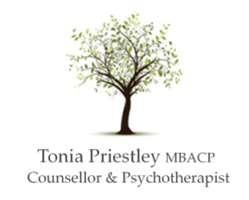



Obesity Treatment
Obesity is a chronic weight problem, which can result in feelings of depression, low self-esteem and unhappiness. Often sufferers will have tried many diets without success, unable to understand how to make a change to eating patterns and therefore creating the feeling of a hopeless cycle.
How therapy will work to help you
Therapy offers a supportive, non-judgmental and safe environment, giving you space away from everyday life to understand your relationship with food and how it is currently impacting on your life.
The initial meeting will help me to build a treatment plan that is right for you.
Together we will explore some sensitive areas to really understand how:
- emotional and physical coping strategies (some may work and some may not)
- the intake of food has become out of control (see example questions below that maybe explored in therapy)
- food is used for emotional comfort
- constant mood swings of depression, shame, loneliness and despair are experienced
- the condition affects self-esteem, life style and body image
- the desire to be thin and lose weight, but eat compulsively at times is all consuming
Holding this information and working in a therapeutic environment we will explore and look forward, because recovery is possible with the right support and treatment.
Examples of questions:
- Do you eat at all times of the day?
- Do you believe you are addicted to food?
- Do you graze or eat in a trance continually throughout the day?
- Do you pay any attention as to whether you are hungry or is this of no consequence?
- Do you binge in secret?
- How have you have managed your weight before. Are you always on and off diets, but nothing works for long?
- Do you make many plans around food and what you will eat, but it’s never enough you always want more?
Recovery aims
Obesity sufferers struggle with their relationship with food, losing willpower and confidence from within.Deep down they know that they have withdrawn from normal life and spend most of the time worrying about food. Obesity treatment is not just about food, we will work across many areas to help you.
Recovery includes:
- building motivation and commitment to change
- understanding how the relationship with food has developed and maintained (this is known as the predisposing, precipitating and perpetuating factors)
- dealing with emotional difficulties from the past
- starting a new relationship with food, working together gently to achieve manageable steps
- strengthening willpower and confidence from within
- building resilience and problem solving skills that will help with everyday life
- identifying new perspectives, for example: realising that coping without favorite foods and not being hungry is achievable
- managing food-cravings and gaining self-control with food
- nutritional knowledge, eliminating over eating, cravings and promoting weight loss
- lifestyle changes
- managing negative thoughts and behavioral patterns: for example: anxiety, fear, unhappiness, anger, self-loathing without turning to food
- managing constant worries around food and weight
- gaining confidence, control and emotional strength
- healing body image
- physical appearance changes to help increase energy and thus decrease the chance of diabetes and insulin resistance. This doesn’t mean going to the gym!
- knowing how to cope with a relapse so that you keep feeling in control
I encourage you to take that first and important step and seek help. Sufferers often believe that nothing will help them, they have tried many times to make changes they experience a deep sense of self-loathing, despair and hopelessness, finding it difficult to initially ask for help. I will be there to support you through changes, helping you at each stage to overcome any difficulties in a trustful and safe environment. Recovery is possible.
If you think I could help you or would like more information please contact me





